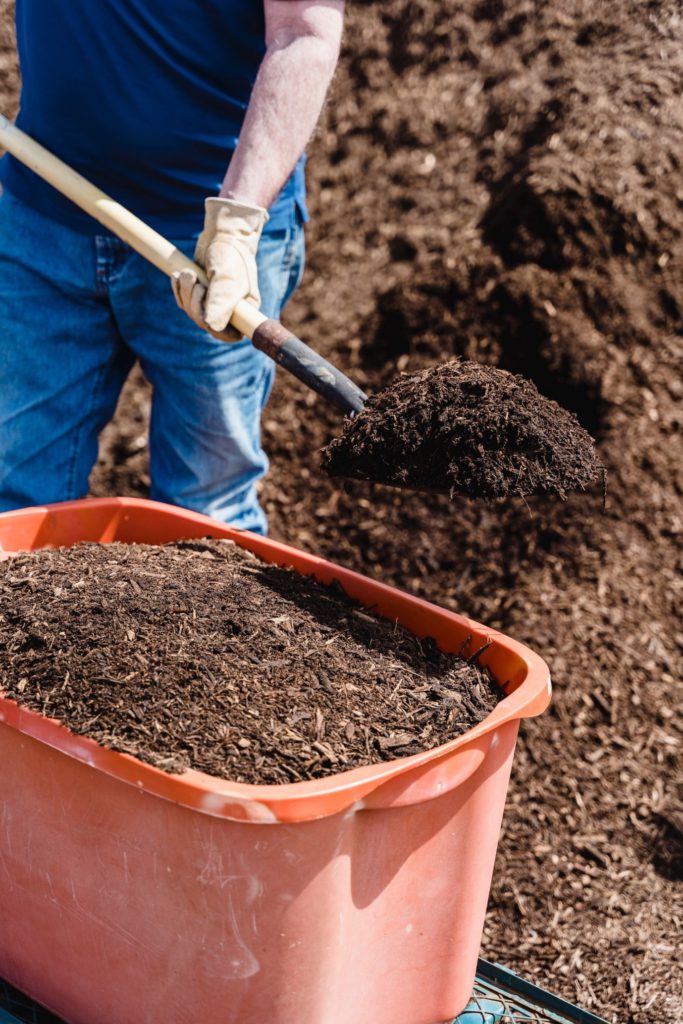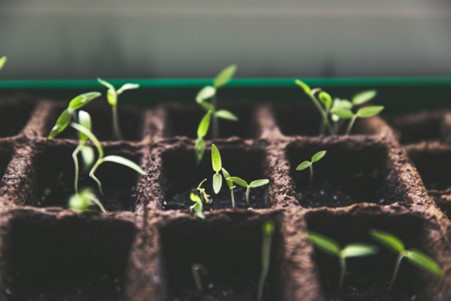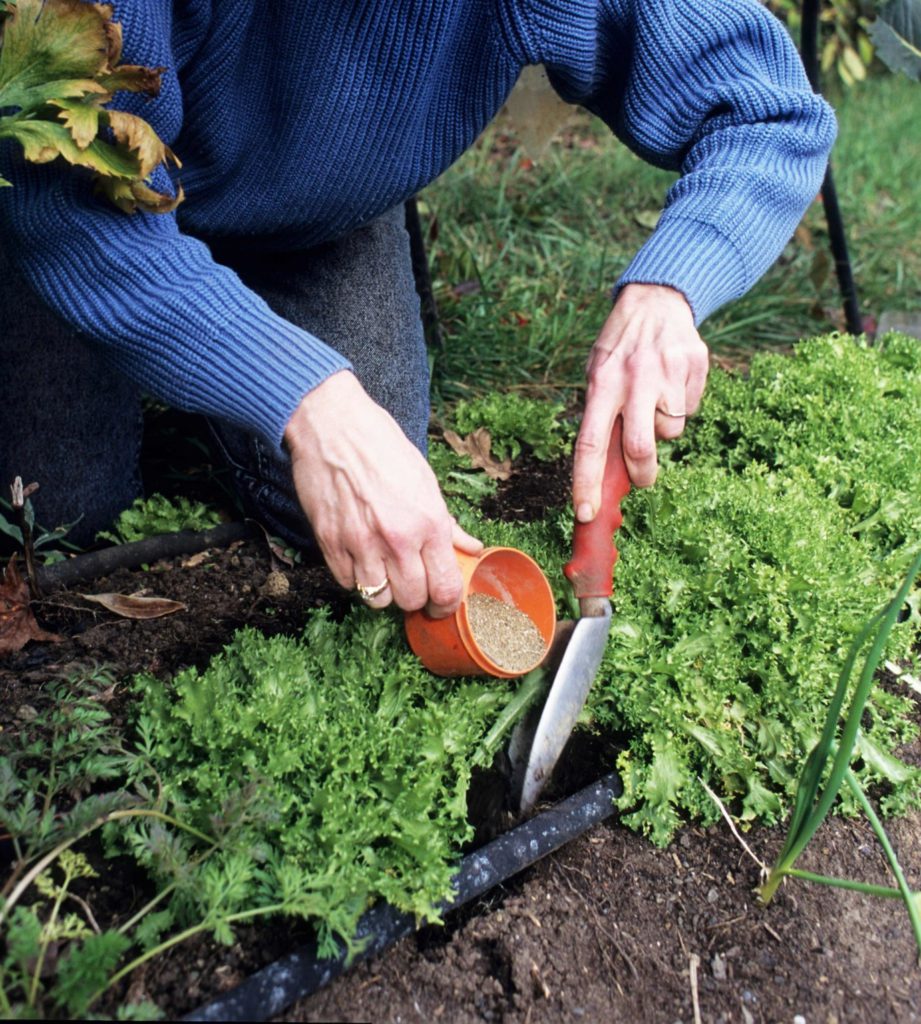Want to amend your soil with a healthy pack of organic nutrients? You know what you need, don’t you?
“The good old compost!”
Yes! Whenever a cultivate desires nutrients, compost often comes in handy.
Nutrients in compost serve as a perfect blend for anything that’s generally grown in soil.
That’s why today, we are going to deeply explore the presence of nutrients in compost. This thing is going to be in-depth as you’ll have a chance to discover almost every scenario there is to discuss around this topic.
To give you a clear picture, we’ll be discussing the nutrients present in compost, why they are beneficial to the plants, how they affect plant growth, how long nutrients last in compost, how much compost is TOO MUCH, compost vs. fertilizers, and nutrients in compost vs. nutrients in compost tea.
Sounds exciting? Let’s begin!

What Nutrients Are in Compost?
It doesn’t matter if you are a beginner or a pro at composting; you know that there is nitrogen, phosphorus, and potassium.
Right? Every neighborhood gardener knows that all plants need these three primary nutrients.
And if you are familiar with fertilizers, you’ll know that almost all fertilizers in the market come with a specific N:P:K tag. We’ll talk about fertilizers in a later section of this article.
Coming on to the nutrients in compost:
According to the California Department of Resources Recycling and Recovery, if we look at the average values of primary nutrients from hundreds of compost samples, nitrogen (N), phosphorus (as P2O5), and potassium (as K2O) are present in almost equal ratios.
But, if we look at the overall aggregated values, nitrogen and potassium are in a greater amount than phosphorus.
But that’s not just it! Compost also contains a bunch of micronutrients and trace elements.
These include sulfur, calcium, magnesium, boron, copper, nickel, zinc, iron, iodine, cadmium, and manganese.
However, some of these “nutrients” are heavy metals that can cause toxicity if present in enormous amounts; we’ll also talk about that later.
First, let’s briefly discuss the individual nutrients present in compost.
Nitrogen
As you might know, the main components of compost are brown and green wastes.
Brown wastes include carbon-rich materials like dried leaves, wood, bark, sawdust, paper, etc. And Green wastes include nitrogen-rich materials like vegetable and food scraps, coffee grounds, eggshells, animal manure, etc.
Therefore, the nitrogen content of the compost comes from green waste.
Fun fact: High percentage of a particular nutrient in compost doesn’t mean it is massively available for the plants. Usually, potassium is much more available to plants than nitrogen or phosphorus.
Generally, nitrogen availability to the plants decreases if the compost undergoes maturation in the presence of nitrogen-rich raw material. While on the other hand, its availability increases if the compost matures in the company of carbon-rich food.
That’s why the ideal carbon-to-nitrogen ratio for composting feedstock is 30:1. If this ratio is greater than 30:1, the microbes utilize the scarce nitrogen content and make it unavailable to the plants.
Once the compost completely matures (finished compost), most of the nitrogen is incorporated into complex organic compounds that are passive to decomposition.
Moreover, any nitrates produced are prone to be consumed by microbes, leached out, or vanished into the air.
At last, only 10–30% of the total nitrogen content is available to the plant for use during the growing seasons.
Phosphorus
Phosphorus is present in the least amounts in compost.
Some studies on plants grown in merely compost-amended soil show symptoms related to phosphorus deficiency much before nitrogen or potassium deficiency.
Adding manure to compost can increase its phosphorus content, but it also alters the nitrogen content and, thus, the carbon-to-nitrogen ratio.
Therefore, most farmers tend to add synthetic fertilizers to the soil to meet the plant’s phosphorus requirements.
Potassium
Potassium is the most readily available macronutrient in the soil because it is not incorporated into the soil’s organic matter.
This was an exposition of the presence of nutrients in compost.
Now, let’s talk about why these nutrients benefit plants.
Why Are the Nutrients in Compost Beneficial for the Plants?
Why do we eat food? Because we can’t live without it? Well…yes, that’s obvious.
But if we speak biologically, our body actually needs the nutrients present in our food. The carbohydrates, lipids, and proteins present in our food are the functional and structural necessities of our cells.
Without them, we won’t be able to live, grow, and perform our lively activities.
Similarly, plants also need nutrients to live, grow, and perform their cellular and non-cellular activities.
Nitrogen
The following are the functions of nitrogen in plants:
- Nitrogen is a major component of chlorophyll in plants and is, therefore, essential for photosynthesis.
- Nitrogen also plays a role as a structural element in plants, as it is present in amino acids (building blocks of proteins). Proteins carry out a lot of functions of their own. For instance, proteins form cell structures like cellular membranes, enzymes are proteins that speed up chemical reactions, and hormones carry out chemical coordination.
- Nitrogen is present in nucleic acids (DNA and RNA). DNA forms the heredity material and the genes, thus, controlling the growth and reproduction of the plant.
- Nitrogen is also present in ATP, the cell’s energy currency. Many cellular processes like the Krebs cycle, photosynthesis, glycolysis, cellular respiration, and electron transport chain involve the utilization and production of ATP.
Feels like a biology class?
Simply put, nitrogen is essential during periods of rapid growth for better plant development and maximum yield.
Phosphorus
The importance of phosphorus is as follows:
- Just like nitrogen, phosphorus is also present in ATP. Therefore, it plays its role in all the processes involving the use of adenosine triphosphate.
- It is also present in DNA and RNA. Therefore, it is essential for the formation of sugars, proteins, lipids, and the plant’s metabolic machinery.
Phosphorus is essential for the germination of seeds, ripening of fruits, and well-timed maturity.
Colloquially, phosphorus is needed for early root growth, plant development, cell division, root nodule formation in legumes, and strengthening of stems in young plants.

Potassium
Like nitrogen and phosphorus, potassium is also crucial for plant life.
- Potassium is needed for enzyme activation and, thus, is essential for forming starch, proteins, and ATP.
- Potassium controls the opening and closing of stomata, regulating the plant’s gaseous exchange and water content via transpiration.
Potassium plays its role in decreasing the severity of plant diseases.
In other words, potassium maintains turgor pressure in plant cells, reduces water loss, increases protein content, produces starch grains, and helps translocate food.
Now you know why the nutrients in compost are not only beneficial but also essential for plants.
How Does Compost Affect Plant Growth?
If you’ve come this far, we’ve talked a lot about the primary nutrients in compost and why they are necessary for plants.
Now it’s time to talk about how these nutrients in compost and compost, as a whole, affect plant growth.
Compost contains a broad range of valuable macro and micronutrients, trace elements, complex blends of organic compounds, and diverse groups of living microbes. All of these components make compost a healthy food for plants.
Following are the ways by which compost affects plant growth:
- Besides providing ample nutrients, compost increases the soil’s overall organic content, increasing the soil’s cation exchange capacity (CEC), and increasing its ability to retain and release nutrients.
- The soil being organically rich, has a better and more porous structure, increasing its ability to retain moisture.
- The microorganisms (bacteria and fungi), worms, and insects live and feed on compost, increasing its diversity of life and supporting healthy plant growth. Some microbes are also helpful in transferring nutrients to plant roots. These diverse life forms in the compost improve the soil’s nutrient cycle, structure, and texture. They can effectively suppress soil-borne diseases as well.
- Compost improves the mobility of air, water, and nutrients in the soil, making nutrients more readily available to plants.
- Compost also makes the soil less prone to erosion and increases its stability.
- Compost reduces compaction and balances soil density. Compacted soil affects root growth. Therefore, compost promotes healthier root growth by making it easier.
- Compost also maintains the soil pH around 6–8.
To evaluate the effects of compost on the fertility and health of the soil, gardeners often obtain a soil test. This soil test will measure the soil’s pH levels, numerical values of nutrients present, and accumulation of heavy metals.
Toxicity Caused Due to Heavy Metals!
As I said before, some elements present in compost can cause soil toxicity if they are present in an enormous amount.
Heavy metals like copper, nickel, zinc, cadmium, mercury, chromium, lead, arsenic and tin can cause toxicity if they accumulate due to excessive use of compost or the use of contaminated compost.
Most of them are essential in small amounts but toxic in large quantities.
Chemically treated yard trimmings, coal ashes, manure, sewage sludge, and processed feeds can add heavy metals to compost.
Municipal waste compost containing sewage sludge and high levels of toxic metals should be sourced and stored separately to avoid contamination.
Immature compost that matures in the presence of nitrogen-rich raw material is often high in ammonium which can be toxic.
How Long Do Nutrients Last in Compost?
Nutrients in compost generally last for a long time.
You can also store compost for an extended period; the longer it is stored, the more nutrients are leaked out into the environment.
The compost works best if you use it within the first 3–4 months after it is completely matured, but you can use it even after that. As time passes, nutrients in the compost will break down and either get utilized or be wiped out into the environment.
Once the compost is finished, further breakdown occurs extremely slowly. Therefore, you don’t need to worry much about that. The wide variety of micro and macronutrients in compost are gradually released over an extended period that can last up to a year.
If compost is stored for a much longer period, it will decrease in volume and become more compact.
Compacted compost doesn’t allow adequate airflow, causing anaerobic conditions, leading to smelly compost rich in organic acids; this increases the soil’s pH levels and can harm the plants.
The microbial activity of the compost diminishes over time, thus making the compost inert.
How Much Compost Do You Need?
Now, let’s see how much compost is TOO MUCH!
People typically suppose there is no such thing as too much compost, but that’s not true.
- As you already know, using large quantities of compost can result in soil toxicity.
- Large amounts of a particular nutrient can cause a deficiency of other nutrients.
- Moreover, the presence of some elements can increase soil alkalinity, which reduces the availability and uptake of certain nutrients.
- It is evident that suffocating a landscape with compost is not a good idea. The recommended degree of applying compost is 1/3rd to 1/4th of an inch in depth.
- Whether the nutrients come from synthetic fertilizers or compost, their excessive use can cause nutrient overloading.
The agricultural fields which undergo extensive fertilization will need nutrient replenishment over time.
It would help you if you avoid excessive use of animal manure-based compost or unfinished compost and test your soil frequently.
Compost vs. Fertilizers | Nutrients Missing in Compost!
Compost is not actually a fertilizer.
Finished compost is more of a soil amendment or soil conditioner than a fertilizer.
Compost contains nitrogen, phosphorus, and potassium, but these nutrients are present in relatively low amounts compared to fertilizers.
The nutrients in compost are generally released slowly over time. While on the other hand, nutrients present in chemical fertilizers are readily available to plants.
Fun fact: Many micronutrients and trace elements present in compost are usually absent in chemical fertilizers.
The addition of nitrogen fertilizers or animal manure speeds up compost decomposition.
Professionals recommend using both compost and fertilizers.
They can make a perfect duo!
Compost increases the soil’s nutrient retention and prevents the fertilizer from running off the soil. The porous structure of composted soil absorbs the nutrients from fertilizers and keeps them stored for a long time.
Composted soil generally needs much less fertilizer.
To put it simply, compost nourishes the soil, and fertilizers nourish the plants.

Nutrients in Compost vs. Compost Tea | Which One Is More Nutritious?
We’ve already talked a lot about compost tea on this blog.
Once you know the recipe, you can effortlessly brew your compost tea.
Compost tea is a liquid made by adding water to compost and mixing it in an aerator; it is also known as actively aerated compost tea.
You can say that the compost tea is liquid compost as it contains a large sum of valuable microbes. However, the amount of nutrients in compost tea is less than the nutrients in the compost.
As compost tea is in liquid form, it makes its organic nutrients readily available for plant use.
Compost tea cannot compete with the structural benefits that black gold (compost) provides to the soil. Still, it does have its effects, like strengthening plant immunity and improving the soil’s water retention capability. Another advantage of compost tea is that it can be easily used over a large area.
So, which one is more nutritious?
The win goes to compost, but compost tea also has its benefits.
With all that said, now it’s time to conclude the talk.
Conclusion
By far, we have discussed almost everything there is regarding nutrients present in compost.
Broadly speaking, now you know everything about the nutrients in compost, their benefits, how compost affects plant growth, how much of it is needed, how long it lasts, how it can be compared to fertilizers, and that it is more nutritious than compost tea.
I really hope you enjoyed today’s article.
